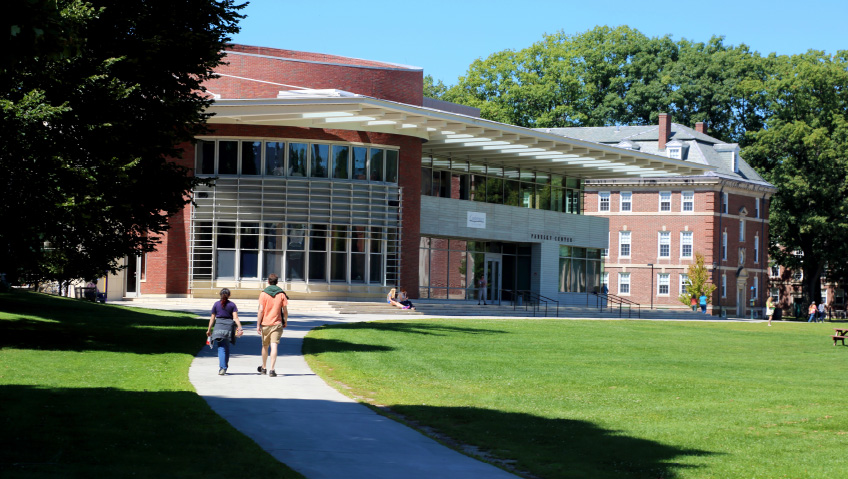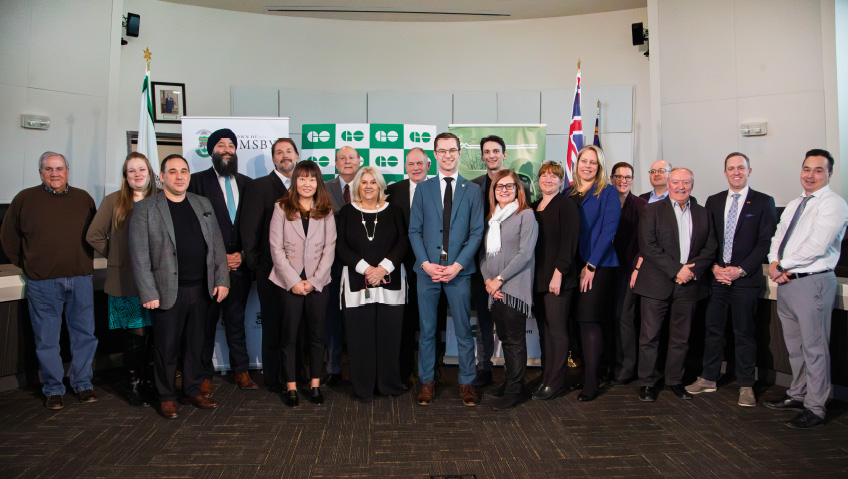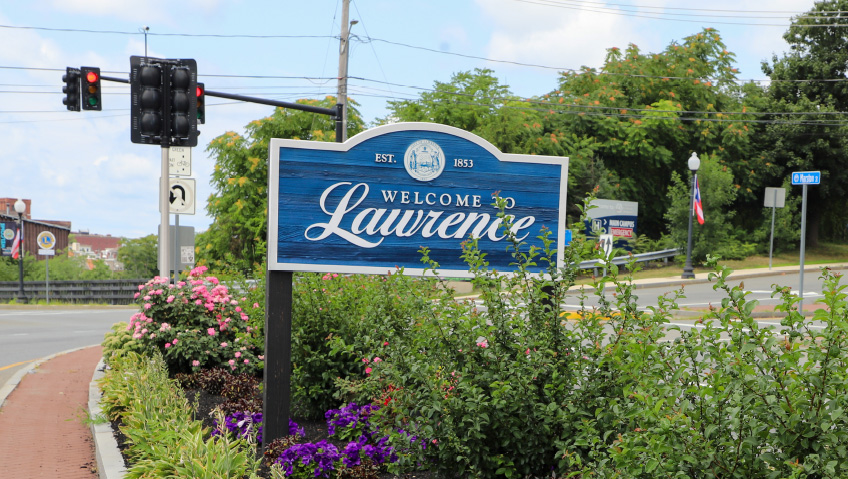In an era marked by pandemic-induced social distancing and a rising cost of living, rural living is reclaiming its popularity. In western Massachusetts, the region known collectively as the Berkshires has garnered and enjoyed a reputation as a rich cultural and artistic center not only in the Bay State but across the region. Now, its economic development agency 1Berkshire, through a collaborative partnership with the Berkshire Innovation Center and Osher Lifelong Learning at Berkshire Community College (collectively the “Tech Impact Collaborative”) plans to kick its plans into high gear to create a new rural economy and innovation hub ripe for investment and opportunity.
Ben Lamb, 1Berkshire’s Director of Economic Development, remarks how many saw the Berkshires as a safe refuge during the pandemic, especially for its lush outdoor space. This natural beauty, he observes, has both boosted the area’s growth and continued to support its many artistic programs.
“There’s been a really big appetite for all of the offerings that our arts and cultural scene has historically had, and I think that the motivations to access those things is as high, if not higher than it was coming into the pandemic,” he says.
He notes that the Berkshires was seeing major development leading into the pandemic and that growth is now resuming. “2019 was a banner year for the Berkshires,” he says, “and I see us getting back into that pace in fairly short order.”
Since 2016, 1Berkshire has consolidated the interests of the Berkshire Economic Development Corporation, Berkshire Chamber of Commerce, Berkshire Visitors Bureau, and Berkshire Creative into a singular organization that embodies the goals of those entities and creates new layers of high-impact synergy to positively impact the Berkshires. In this evolving industry landscape, 1Berkshire’s goals through its work with the Tech Impact Collaborative are to develop the Berkshires as an inclusive tech economy ecosystem and bolster a rural innovation hub identity in the region.
As the pandemic has decisively proven the feasibility of remote work in many technology jobs, Lamb and his team are taking advantage of the Berkshires’ lower cost of living, quality of life, natural beauty, and proximity to larger metropolitan areas like Boston and New York City to bring in entrepreneurs and innovators.
Perhaps the largest driving force behind this new growth is the Berkshire Innovation Center (BIC). Opening just before pandemic shutdowns in late February 2020, the BIC has thrived and consolidated the interests of many local business owners to provide a common space to strategize, and as restrictions ease, growth is continuing to accelerate. “Over the last six weeks, it’s been amazing to see the place re-activated with bigger groups,” states Executive Director Ben Sosne. The BIC is also countering the workforce crisis with educational programs, giving workers the skills they need to succeed in the modern economy.
These educational programs are taking a particular interest in the next generation. The BIC’s BeTA program ushers youth into a pipeline of innovation, placing them into internships and shadowing opportunities. “This program, through and during the pandemic, has been this crucial gravitational point that continues to grow and change, and I think we’re going to see more of that as we go forward,” says Lamb.
The program aims to give local students the skills they need to remain closer to home, developing their career path in the Berkshires, rather than heading for larger cities. Other educational programs are geared toward the later career workforce, as retirement ages increase and workers want their skills to remain relevant.
Additionally, 1Berkshire and the BIC are capitalizing on Massachusetts’ leadership position in technology jobs. Sosne says that the drive and talent among its residents were already there—all that was needed was space. “By creating a physical hub for these companies, it allows us to interact with these agencies in a way that they’re more effective,” he says.
This technology leadership continues through state support, as federal and state funding are now supporting educational programs and hiring incentives. The state government is recognizing rural equity and increasing funding to more rural areas, and the Berkshires is the most rural area in Massachusetts. These programs will allow area businesses to offset operational costs through green energy investments like state-subsidized solar panels, or gain hiring incentives through salary subsidization.
A new red tape-cutting measure, the Community One Stop for Growth, amalgamates twelve grant programs into a single application pipeline. “That allows us to work with businesses, potential businesses, developers, and agency partners to apply for the best chance of getting those resources into their hands so they can be immediately put into action,” Lamb says.
This support is helping to drive the spirit of partnership even further. “We’ll talk about who we’ll bring around a table like it’s nothing, like it’s second nature,” Lamb says, mentioning the ease to bring together college professors, local delegates, non-profits and state agencies. “It’s not an afterthought to bring these agencies together. They’re already there.”
This cooperative mindset helped the region weather the worst of the pandemic and is continuing to inform 1Berkshire’s decisions. “We’re actually working as an organic, interconnected beast, if you were, toward that collective impact approach to economic development and innovation as it applies to the regional economy,” Lamb says.
The result of these efforts is a thriving digital entrepreneurial community in life sciences, aerospace, financial technology, and other sectors. 1Berkshire’s Berkshire Blueprint 2.0 outlines new developments in advanced manufacturing, agriculture, and healthcare, as well as enhancing the region’s hospitality and tourism. “Every corner you look around, innovation and entrepreneurship are happening, and that’s really exciting,” Sosne says.
This work catalyzed the bold development of the Tech Impact Collaborative. Since late 2020, it has provided a common space to develop opportunities for technology innovation in a rural network. Through cooperation with The Center on Rural Innovation, the collaborative continues to begin developing new opportunities, particularly focusing on inclusive programming that supports people of color, immigrants, and the formerly incarcerated. Communication with the business community ensures steady growth and that the organization remains cognizant of the rapidly changing needs of modern business.
Lamb says the Collaborative is the culmination of years of planning and work. “This is that next big step for us: to be able to really scale our digital ecosystem here so that we are advancing as fast as, if not faster than, the rest of the Commonwealth,” he says. Sosne says that as both the BIC and the Berkshires as a region have both grown, some work involves stepping back and assessing the region’s strength, particularly in its proximity to other metropolitan areas across New England and the Northeast.
He places his faith in its talented residents and readily repurposed infrastructure, thanks to the Berkshires’ industrial past. “These are huge assets that we bring to the table,” he says, “and we want to be right out in front of that. We really think that there’s a lot of potential here, and we’re excited to double down and do it in a coordinated, strategic way.”
This strategy of recruitment and retention will hopefully help keep the cost of living manageable as the Berkshires continues to grow. 1Berkshire operates a job site, offering only opportunities with salaries of $40,000 or higher or their hourly equivalents, and Lamb relates that it is bringing in new applicants. “That’s been extremely successful over the past three years. We’re actually growing the system right now. It’s going to have a big bump in the next couple of months.”
1Berkshire is also being proactive in focusing attention toward civic essentials like affordable housing, schools, and transportation. A recent housing strategy has outlined sixty actions to ensure families can still call the Berkshires home. As a result of this, 1Berkshire can continue to focus the area’s resources and major players to guarantee a united vision and approach.
In Lamb’s view, it is an obvious choice. “We know that we need to be doing those things in order for everyone to be pulling on the rope in the same direction,” he says. 1Berkshire is also a strong advocate of Massachusetts’ West-East Passenger Rail, which aims to bring high-speed rail to link Boston to Pittsfield, in the Berkshires. As the Berkshires area connects to three other states, this would further aid the region’s development.
The main development organizations of 1Berkshire and the BIC are leading the Berkshires into a bright future as the region continues to grow. Its history of teamwork brings decisive action followed by measurable results. “We’re able to get around the table together, brainstorm together, and then act and take tactical approaches to making things happen,” Lamb says, commenting on the stereotype of arduous government studies sitting on shelves with no further action. “In the Berkshires, that’s never going to be the case as long as 1Berkshire is involved.”
He says that the Berkshires has firmly formed its identity as a new digital economy, and it is just getting started. “Whether it’s this year or next year, this identity of the Berkshires becoming a true home for innovation and center of gravity in a rural space is going to be a narrative that you hear more about, because it’s something that we’ve identified as a capacity to grow into, and we see the assets and the gaps and how we’re going to fill them,” he says. “We’re charging full speed ahead, in that respect.”






